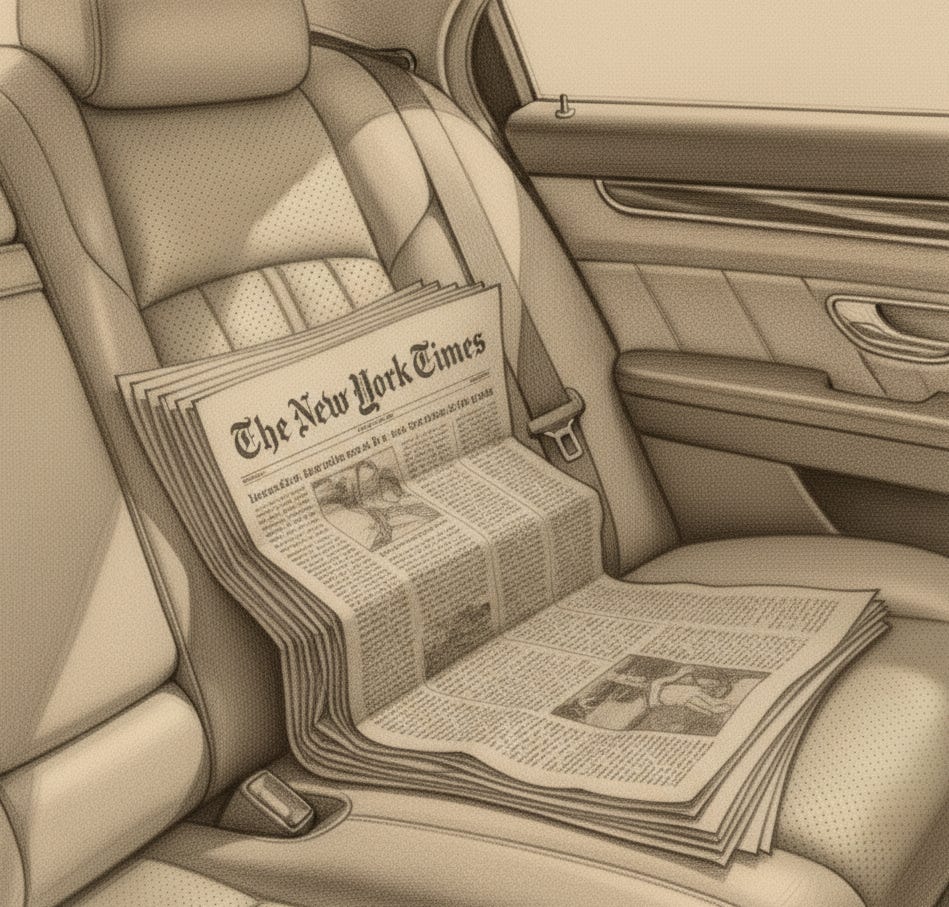The larger question is this. Exactly what kind of a man, what kind of a leader, is willing to return again and again to a part of his capital that has pooped on him twice? This kind of a man, my lovely Langley friends. The President’s kind of man. He takes encouragement from the hecklers! Strength, and confidence! Certainly from the dumpers, he does. Why? It is a question of definitions. The mongrels at the New York Times like to use words like “police” and “state” in nefarious conjunction, when referring to Palatiparvu, but one really has to wonder: if our land were in fact an authoritarian hellhole, would any Palatiparvanians be willing to pour feces on the President’s car? Would any have the courage?
I think not. The citizens of that Palatiparvu, the imaginary one, would expect to be shot for such an act. As it is, shit dumpers are only to be hunted down and beaten. This is policy, and everyone knows it. Common knowledge: never has anyone been executed, never will anyone be executed, for spilling human waste in the general direction of the President’s automobile. Therefore how can you call the man a dictator? This is what the president and I would like to know. How — especially — when most of the people on those balconies are not, in fact, throwing shit? When most of them are throwing nothing? Are just waving and blowing kisses? By choice, they are. The typewriter gremlins on West 42nd whine about the President’s wish to be worshiped, but I grant their moans only this: one more important question. Exactly who, in the largest and glossiest of the photos on my desk, is genuflecting to whom?
The picture is of the President, of course. I took it myself, years ago, in the days before I was asked not to carry a camera anymore. The President, in the photo, is in his limousine — I am in it with him, obviously, right there on the bench in the back — and he is sitting forward, tense with pleasure, neck twisted, looking up. His eyes are trained on, trained through, the glass of the limousine sunroof. And above us, high above — so high that you cannot see it in the picture, not at all, but I’m telling you, it was there — is a crowd of men and women and children, gleaming.
They are dressed all in white, presumably for a wedding, and the sun catches, the sun caught, their clothes in the way it catches clouds. The people are a family, it seems, and they are gathered on a fire escape, floating out over the street on steel rods and slats and ladders; they flutter their hands at the President and call to him with wide-eyed joy. Two seated girls with their legs swinging free swirl tiny Palatiparvanian flags in the Old City air, and the eldest of the group, a thin bent woman in a kerchief and glasses, laughs. Hers is the glee that comes from serendipity and silliness and making eye contact with your president. We are looking down at you, says her expression, and you are looking up at us, and what a marvelous bit of absurdity that is!
The President agrees. He is tickled, in the photo. He gazes up at the people, his people, and smiles. His rare and tiny dimples appear. His face is lit from above and beatific, devoted, at peace.



I’ve read all seven installments now, and it’s one of the most distinctive things I’ve come across in a while. The voice of Maglibenot, the so-called Tea Slave, is unforgettable. He comes across as funny, unsettling, and strangely tender. The world of Palatiparvu feels completely alive, full of invented history and political absurdity that somehow feels true in today's world and in my own country (I'm in the US). The writing is rich and deliberate, every sentence loaded with rhythm and irony.
If I had one critique, it’s that the prose can get a little heavy at times (like the long title, which, to be honest, almost made me not read it.... ), and the story slows under its own weight at certain spots, but that’s a small thing compared to how immersive and original the series is. I also want to say that it gets better over time, like you definitely got more comfortable in the story as you went on. If you ever wanted to publish this as a finished novel, I think a new title would be helpful. over and out.
Attention, even negative attention, shows you are actually alive and seen. Little kids understand this from an early age. Some people never outgrow that need. Sometimes they even grow up to be President,